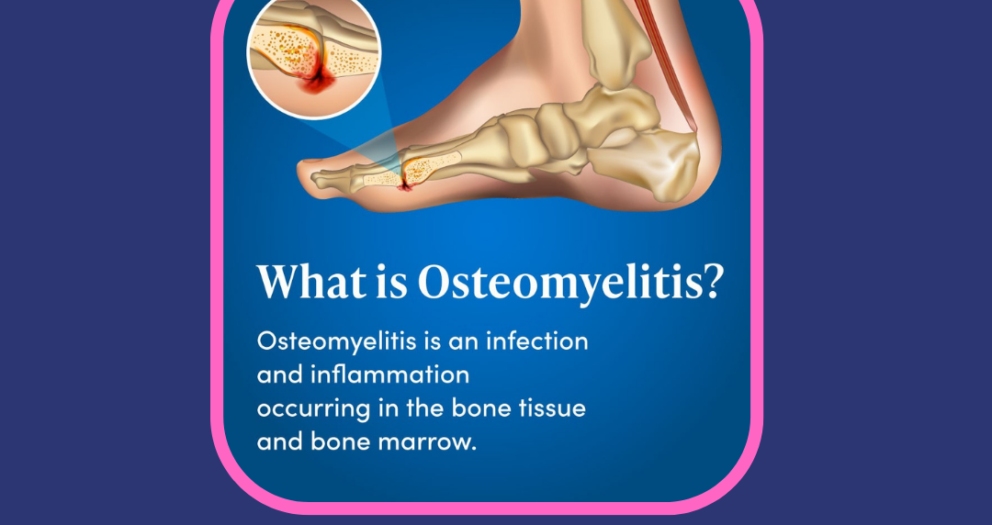Thyroid Disorders May Result In These Typical Symptoms
The thyroid is a small, butterfly-shaped gland at the neck’s base. Despite its small size, the thyroid plays a crucial role in regulating many of the body’s functions, including metabolism, energy production, and hormone balance. When the thyroid doesn’t function properly, it can lead to a range of thyroid disorders, the most common of which are hypothyroidism (underactive thyroid) and hyperthyroidism (overactive thyroid). These conditions can cause a variety of symptoms that can significantly affect one’s quality of life. In this blog, we’ll explore the typical symptoms of thyroid disorders, helping you understand how to identify potential issues with your thyroid.
1. Fatigue and Weakness
Fatigue is one of the most common symptoms associated with thyroid disorders, especially hypothyroidism. The thyroid gland produces hormones that regulate your body’s metabolism, which is how your body uses energy. When the thyroid is underactive, your metabolism slows down, leading to persistent fatigue, even after a full night’s sleep.
- Hypothyroidism: You may feel constantly tired, sluggish, or weak, and even simple daily activities can become exhausting.
- Hyperthyroidism: While hyperthyroidism typically speeds up the metabolism, it can still cause fatigue due to the body’s overdrive and the strain it puts on the system.
2. Weight Changes
Thyroid hormones directly influence your body’s metabolism, so disorders can lead to significant changes in weight.
- Hypothyroidism: Often causes unexplained weight gain, as the body’s metabolism slows down, leading to the accumulation of fat and reduced calorie burning.
- Hyperthyroidism: Typically results in weight loss, even if your appetite and food intake increase, due to an accelerated metabolism.
Unexplained weight changes, especially when combined with other symptoms, can be a clear indicator of a thyroid disorder.
3. Sensitivity to Temperature
Changes in temperature sensitivity are another hallmark of thyroid disorders.
- Hypothyroidism: This can make you feel unusually cold, as a slower metabolism reduces your body’s ability to generate heat.
- Hyperthyroidism: This can cause an intolerance to heat and excessive sweating, as an overactive metabolism increases body temperature.
These symptoms can make everyday comfort difficult and can be especially noticeable in environments where the temperature is not controlled.
4. Hair and Skin Changes
Thyroid hormones are essential for maintaining healthy hair and skin. When the thyroid is out of balance, it can lead to noticeable changes in these areas.
- Hypothyroidism: This may cause hair to become brittle, coarse, and thin, or even lead to hair loss. The skin can become dry, pale, and scaly.
- Hyperthyroidism: This can also lead to hair thinning or hair loss, but the skin may become unusually soft, warm, and moist due to increased blood flow.
Changes in hair and skin condition, especially when paired with other symptoms, can be a strong indicator of a thyroid imbalance.
5. Mood Changes and Cognitive Issues
Thyroid disorders can have a profound impact on mental health, mood, and cognitive function.
- Hypothyroidism: This is often associated with feelings of depression, forgetfulness, and difficulty concentrating. The slowed metabolism can affect brain function, leading to what is commonly referred to as “brain fog.”
- Hyperthyroidism: Can cause anxiety, nervousness, irritability, and restlessness. It may also result in difficulty sleeping, leading to mood swings and decreased cognitive performance.
If you are experiencing sudden changes in mood or mental clarity, it could be related to thyroid dysfunction.
6. Irregular Menstrual Cycles and Fertility Issues
Thyroid hormones are closely linked with reproductive health, so imbalances can lead to menstrual and fertility issues.
- Hypothyroidism: Can cause heavier, more frequent, or longer menstrual periods. It may also lead to difficulties in conceiving due to the impact on ovulation.
- Hyperthyroidism: Often causes lighter, less frequent menstrual periods, and can also contribute to fertility challenges.
Women with thyroid disorders may experience changes in their menstrual cycle or struggle with fertility, making it important to address thyroid health when planning a family.
7. Heart Rate Changes
The thyroid hormones have a direct effect on the heart, influencing the speed and strength of the heartbeat.
- Hypothyroidism: Often results in a slower heart rate (bradycardia), which can cause symptoms such as fatigue, dizziness, or feeling faint.
- Hyperthyroidism: This can lead to a rapid heart rate (tachycardia), palpitations, or irregular heartbeat (arrhythmia). This can make you feel anxious, breathless, or like your heart is racing.
Heart-related symptoms can be alarming and are a significant reason to seek medical evaluation if you suspect thyroid issues.
8. Digestive Issues
Thyroid disorders can also affect the digestive system, leading to noticeable symptoms.
- Hypothyroidism: Often causes constipation due to a slower metabolic rate, which can reduce the movement of the intestines.
- Hyperthyroidism: This can cause frequent bowel movements or even diarrhea, as the digestive system is sped up.
Persistent digestive issues that do not resolve with dietary changes may be linked to thyroid function.
9. Goiter and Neck Discomfort
A visible swelling at the base of the neck, known as a goiter, can be a sign of a thyroid disorder. This occurs when the thyroid gland becomes enlarged.
- Hypothyroidism: Goiters can occur when the thyroid gland tries to compensate for low hormone production.
- Hyperthyroidism: A goiter can also develop when the thyroid gland is overactive.
Neck discomfort, a feeling of tightness, or trouble swallowing can be associated with a goiter, making it a visible and palpable symptom of thyroid dysfunction.
10. Muscle and Joint Pain
Muscle weakness, aches, and joint pain are also common symptoms of thyroid disorders.
- Hypothyroidism: May cause muscle stiffness, joint pain, and general aches due to slowed metabolism and reduced energy production in the muscles.
- Hyperthyroidism: Can lead to muscle weakness, particularly in the upper arms and thighs, due to the rapid breakdown of muscle tissue.
These symptoms can impact mobility and overall physical function, making it difficult to perform everyday activities.
Related Posts:-
Which Medicines Are Effective for Treating Erectile Dysfunction?
The Primary Six Causes Of Male Erectile Dysfunction
What Women Feel And Think About Sexual Desire?
Is Erectile Dysfunction Associated With Heart And Blood Vessel Disease?
The Top 10 Male Advantages Of Almonds And Walnuts
Are Pineapples Safe For Diabetes Patients to Eat?
What Are the Effects of Tadalafil on Kidneys?
Can Having Sex After a Heart Attack Be Harmful?
Fenugreek: Does It Help In Libido? Studying its Value
Conclusion of this Article:-
Thyroid disorders can present a wide range of symptoms that affect many aspects of physical and mental health. From fatigue and weight changes to mood swings and heart rate irregularities, the effects of an underactive or overactive thyroid can be significant. If you are experiencing several of these symptoms, it’s important to consult with a healthcare provider. A simple blood test can diagnose thyroid disorders, and effective treatments are available to manage and alleviate symptoms, helping you regain your quality of life. Being aware of these typical symptoms allows for early detection and better management of thyroid health.



Write a comment
Your email address will not be published. All fields are required